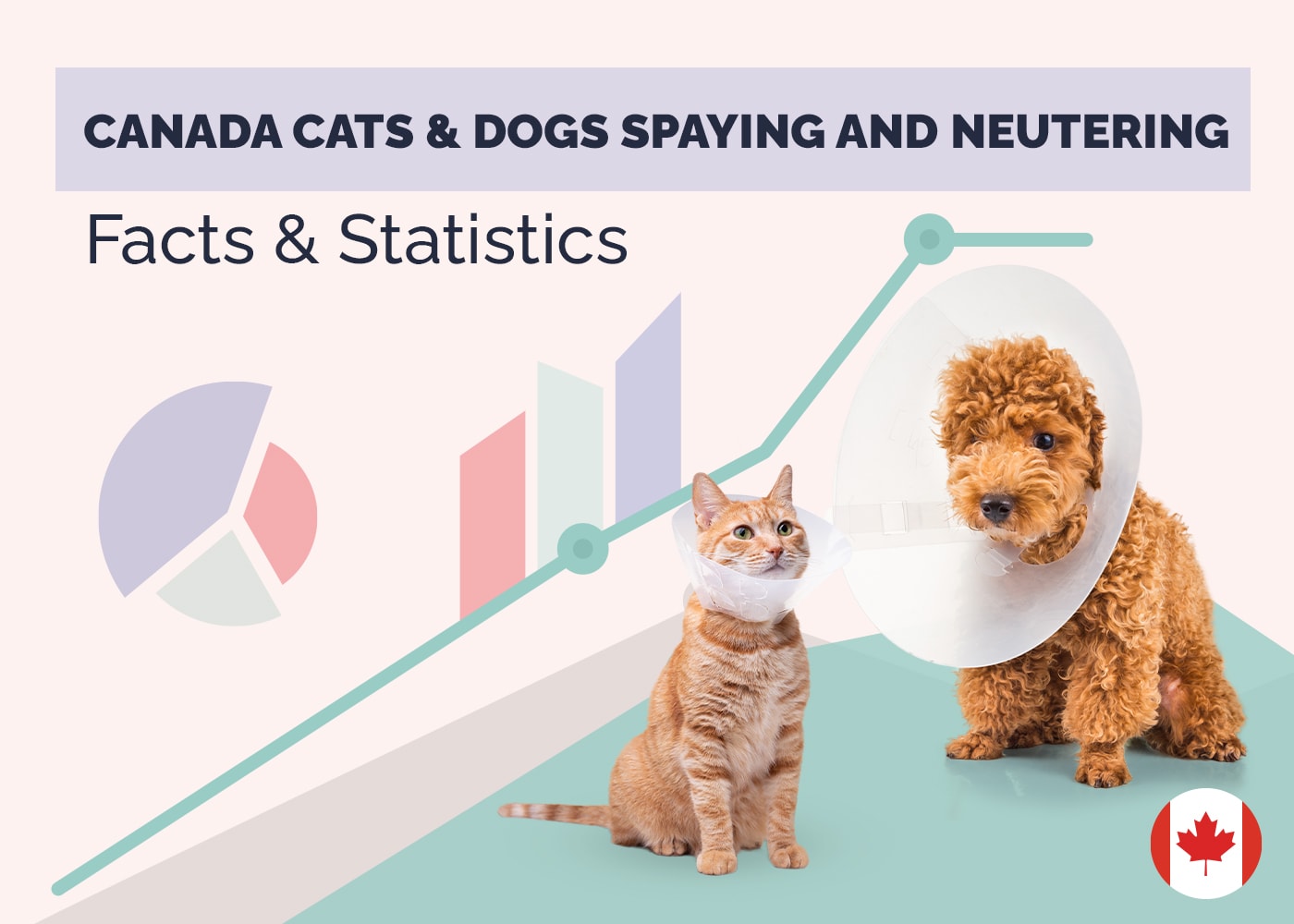Are Pit Bulls Banned Across Canada? Ownership Restrictions & FAQ
Updated on
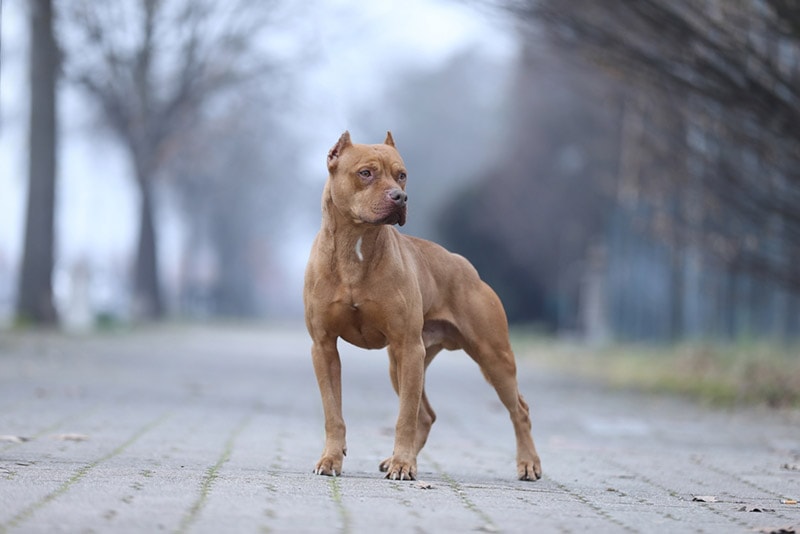
Click to Skip Ahead
The Pit Bull has gotten a bad rap over time because of how they are perceived: as aggressive and dangerous dogs. The controversy around Pit Bulls has caused several countries around the world to ban anyone from owning this breed.
But is Canada one of those countries? As a whole, Canada does not have a ban on Pit Bulls or any specific regulations, but a few provinces and municipalities do have banning laws in place.
Let’s discuss where Pit Bulls have been banned in Canada through legislation and why these dogs are targeted as much as they are.
What Is a Pit Bull?
Before we delve into legislation and bans, let’s define what many countries consider to be a Pit Bull. There really isn’t any one breed that is a “Pit Bull,” but several breeds fit into the “Pit Bull” umbrella.
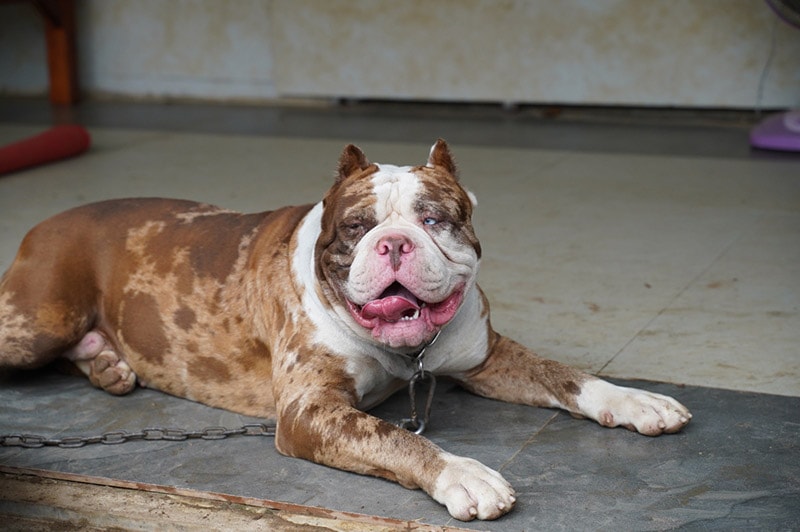
Pit Bull Characteristics
Dogs labelled “Pit Bull-type” tend to have stocky yet muscular builds with large, square heads and deep chests. They are medium to large in size and can weigh between 30 and 90 pounds. Due to their stocky builds, they can appear larger than they actually are.
Temperament-wise, they are very much working dogs that want to be given a task. They are also incredibly energetic, adore being the centre of attention, and can be affectionate and loving.
- American Bully: This newer breed was developed in the ‘80s and ‘90s by mixing the American Pit Bull Terrier and other bulldog breeds. These dogs are quite broad and stocky and are known to be gentle, loving dogs.
- American Pit Bull Terrier: This breed is commonly called a Pit Bull, and their ancestors were brought to North America from the U.K. They are a mix of terriers and bulldogs. Unfortunately, they were used often in dogfighting and still have a high prey drive. But when socialized well, they are excellent family pets that simply need plenty of exercise!
- American Staffordshire Terrier: These dogs have terriers and bulldogs in their background, and while they weren’t used for dogfighting like most other bully breeds, they still have a high prey drive.
- Staffordshire Bull Terrier: This British dog was bred for dogfighting but today is a devoted and loving family dog. They are gentle with children but need someone home most of the time, or they can develop separation anxiety.
- American Bulldog: This dog is a descendant of the famous English Bulldog but was sadly used for bull baiting, which is a blood sport in which dogs fight bulls.
Most of these Pit Bull breeds were bred for blood sport, which is part of the reason that they have such a bad reputation. But any dog can be dangerous in the right circumstances. In fact, many dog breeds that you wouldn’t expect to be biters can be quite vicious, such as Cocker Spaniels.
Where in Canada Are Pit Bulls Banned?
The Canadian government does not regulate Pit Bull ownership. But a few cities and provinces have set up legislation banning the ownership of Pit Bulls.
Ontario
Ontario has had a Pit Bull ban since 2005. It includes American Staffordshire Terriers, Pit Bull Terriers, American Pit Bull Terriers, Staffordshire Bull Terriers, and almost any dog that resembles a Pit Bull.

Manitoba
The province of Manitoba has more than 40 cities with a Pit Bull ban, including the capital city, Winnipeg.
Like Ontario, the ban includes American Staffordshire Terriers, American Pit Bull Terriers, Pit Bull Terriers, and Staffordshire Bull Terriers. A few other cities with the ban are Macdonald, The Pas, and Reston.
The Rest of Canada
There are bans for Pit Bulls in several towns in Newfoundland and Labrador, Nova Scotia, New Brunswick, Saskatchewan, and Alberta.
 Restrictions on Pit Bulls in Canada
Restrictions on Pit Bulls in Canada
While Ontario is the only province with a total ban, in addition to a few cities scattered throughout five other provinces, there are other provinces and municipalities that have restrictions rather than outright bans.
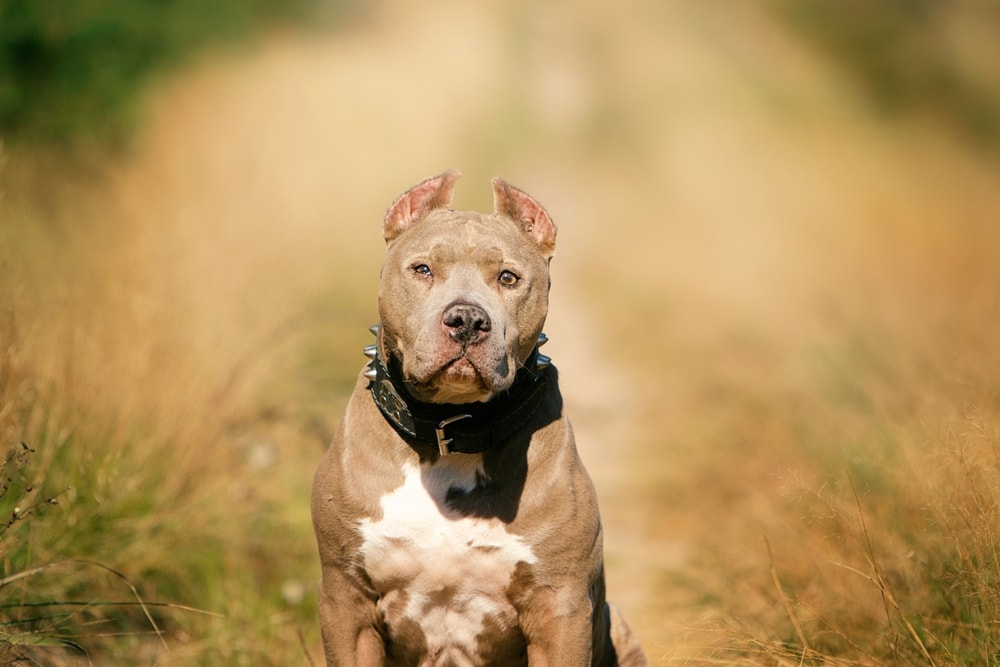
British Columbia
Several cities and municipalities in B.C. have restrictions in place for Pit Bulls. Richmond has animal-control bylaws that any Pit Bull-type dog must be muzzled while in public and must be confined inside or in a securely fenced yard at home at all times.
Additionally, all entrances and exits must have signage that declares a vicious dog is on the premises.
West Vancouver has an aggressive dog bylaw that has multiple rules and restrictions. Pit Bulls must stay on a leash no more than 1.5 metres or in a cage while kept indoors. There should also be signs on the property that essentially warns that this dog is on the property.
Quebec
Quebec started a breed-specific legislation bylaw against Pit Bull-type dogs, which was overturned in 2018. In 2020, Quebec posted a dangerous dog law, but it is not breed specific and is generally for any dog that is deemed dangerous to the public.
The rules stipulate that the dangerous dog must be spayed or neutered, microchipped, vaccinated (for rabies), and muzzled when out in public.
 Does Breed-Specific Legislation Work?
Does Breed-Specific Legislation Work?
For the most part, studies have shown that breed-specific legislation doesn’t work. For example, in Toronto, the legislation passed in 2005, and reported dog bites actually increased. This was also with far fewer Pit Bulls roughly 10 years after the legislation. The most reported dog bites before the ban and 10 years after the ban were from German Shepherds.
Fewer Pit Bulls but an increasing number of bites show how ineffective breed-specific legislation can be, at least in the case of Toronto. Banning dogs that look like Pit Bulls doesn’t take into account the temperament of each individual dog.
The law essentially punishes dogs for their appearance, but aggression results from the following:
- Lack of socialization and training
- Poor breeding
- Lack of mental stimulation and exercise
- Mistreatment (abuse and neglect)
- Intact dogs (not spayed or neutered)
- Health issues
According to the American Temperament Test Society, Pit Bulls are actually among the most tolerant breeds. The Labrador Retriever is the most tolerant, with a score of 92%, followed by the Pit Bull Terrier, with a score of 86.8%.
It’s also problematic to label a dog as a Pit Bull when far too frequently, the dog is simply put in that category because they are stocky and short-haired. This means many of the statistics likely overrepresent Pit Bulls.
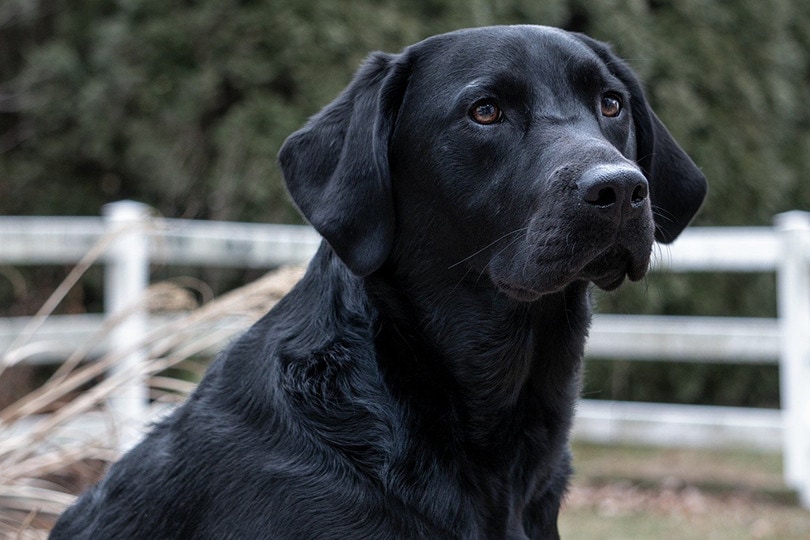
What’s the Best Solution?
Responsibility should be placed on the dog’s owner. Calgary has strict bylaws that require dog owners to get a license for their dogs, have them tagged or microchipped, train them appropriately, and have them spayed and neutered. Dog owners are fined $250 for not having a license and fined up to $10,000 if their dog is involved in an attack.
Dogs are really only dangerous when in the wrong hands.
Conclusion
Pit Bulls are not banned unilaterally across Canada. However, the province of Ontario has a ban on Pit Bulls, and multiple cities and municipalities have bans and strict regulations.
Breed-specific legislation is problematic, and thousands of non-aggressive dogs have been euthanized because of it.
The responsibility lies with each and every dog owner to train and socialize their dogs and treat them with love and respect. Regardless of the breed, any dog abused and neglected can become aggressive, and Pit Bulls are among the most abused dog breeds out there.
Featured Image Credit: Sophia Tr, Shutterstock

 Restrictions on Pit Bulls in Canada
Restrictions on Pit Bulls in Canada Does Breed-Specific Legislation Work?
Does Breed-Specific Legislation Work?







